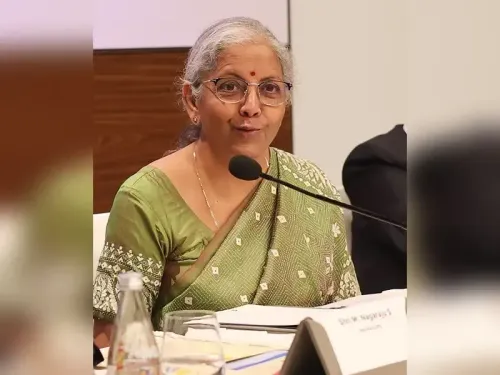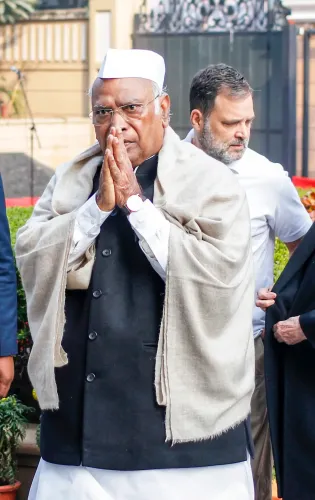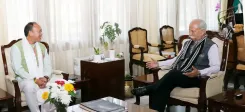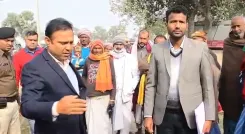Why Are Bangladesh's Ex-PM Hasina and Her Family Barred from Voting in the February Elections?
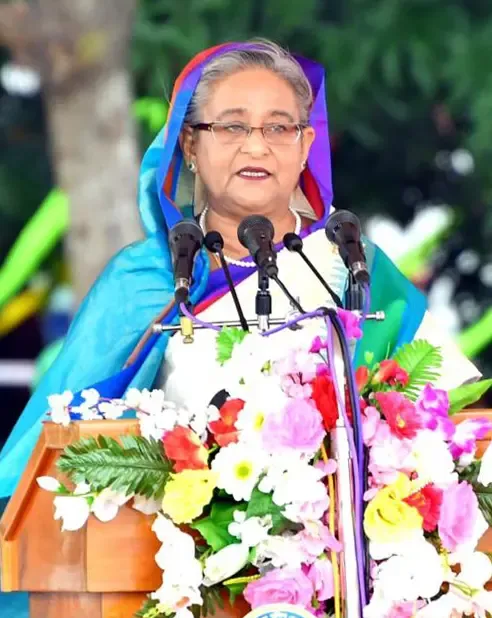
Synopsis
Key Takeaways
- Sheikh Hasina's NID is blocked, preventing her from voting.
- The Election Commission confirms the NID regulation applies to all citizens.
- Political analysts view these actions as politically motivated.
- The Awami League faces significant challenges ahead of the elections.
- Concerns about democracy in Bangladesh are escalating.
Dhaka, Sep 18 (NationPress) The former Prime Minister of Bangladesh, Sheikh Hasina, along with several members of her family, will not be permitted to participate in next year's elections due to their National Identity (NID) Cards being blocked, as reported by local media.
The Senior Secretary of the Election Commission (EC), Akhtar Ahmed, stated to reporters on Wednesday that "any individual whose NID card is locked cannot vote from abroad. While those who have fled overseas due to legal cases or other circumstances do not face obstacles in voting, their NID must remain unlocked."
"To cast a vote from abroad, one must register online using their NID number. A passport will not suffice. Therefore, if someone's NID is locked, they cannot register. Only those who register with their NIDs will have this opportunity," The Business Standard quoted the EC official as saying.
When questioned about Hasina's ability to vote, he confirmed, "She cannot vote because her NID is blocked."
In April, the National Identity Registration Wing under the EC "locked" Hasina's NID and those of nine family members following a verbal directive from its Director General, ASM Humayn Kabir.
The family members affected include Sheikh Rehana Siddique, Sajeeb Wazed Joy, Saima Wazed, Shahnaz Siddique, Bushra Siddique, Tulip Rizwana Siddique, Azmira Siddique, Radwan Mujib Siddique, and Tarique Ahmed Siddique.
Previously in July, the EC removed the election symbol of Hasina's Awami League from its website in an effort to diminish the party's decades-long political presence in Bangladesh, according to local media.
On May 12, the interim government led by Muhammad Yunus issued a gazette notification prohibiting all activities of the Awami League and its affiliated organizations.
This ban was enforced under the Anti-Terrorism Act until the trial of the party and its leaders in Bangladesh's International Crimes Tribunal (ICT) is concluded.
Analysts view these recent developments as a continuation of the political vendetta pursued by the interim government against Hasina and her family, aiming to prevent the Awami League from participating in the national elections.
The abrupt departure of Hasina last August was perceived globally as a significant setback for democracy in the nation. The interim government has faced substantial criticism for providing sanctuary to radical and extremist Islamic groups.



